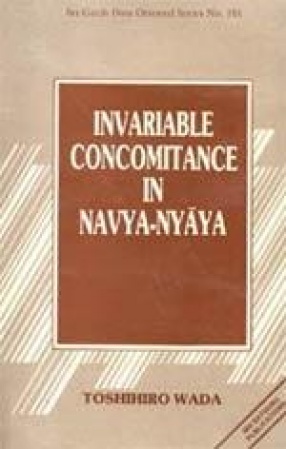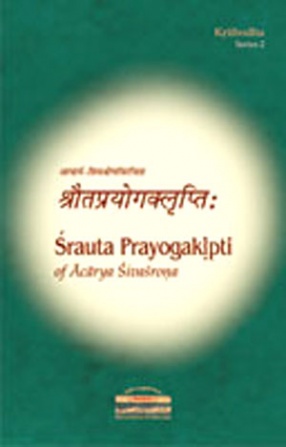One of the important tasks of logic is to analyze and classify statements by implication into two: true and false. If a true statement implies some other statement, that other statement is also true. Indian logicians maintained that implication depends upon the validity of invariable concomitance. Thus invariable concomitance is the logical base for implication. Since implication guarantees the validity of inference, invariable concomitance also gurantees the logical base for the validity-Indian logicians made great efforts to define invariable concomitance in order to validate inference. Gangesa and Raghunatha’s definitions became famous in the later Navya-Nyaya tradition and were called conclusive definitions. The present book consists of two parts. Part one discusses the logical significance of invariable concomitance and provides a philosophical analysis of fundamental terms in navya-Nyaya; Visesana, Nirupaka, avacchedaka, and so forth. It endeavors to contribute to an understanding of the discussion on invariable concomitance and a logical analysis of the definitions of invariable concomitance formulated by Gangesa and Raghunatha. Part two presents an English translation and explaination on the Siddhantalaksanaprakaranas of Gangesa’s Tattvacintamani and Raghunatha’s Tattvacintamanididhiti. The translation is accompanied by illustrations which clarify the meaning more easily. The book is published under Sri Garib Dass Oriental Series.
Invaribale Concomitance in Navya-Nyaya
In stock
Free & Quick Delivery Worldwide
reviews
Bibliographic information
Title
Invaribale Concomitance in Navya-Nyaya
Author
Edition
1st. ed.
Publisher
ISBN
8170302277
Length
xiv+535p., Figures; Bibliography; Index; 22cm.
Subjects







There are no reviews yet.